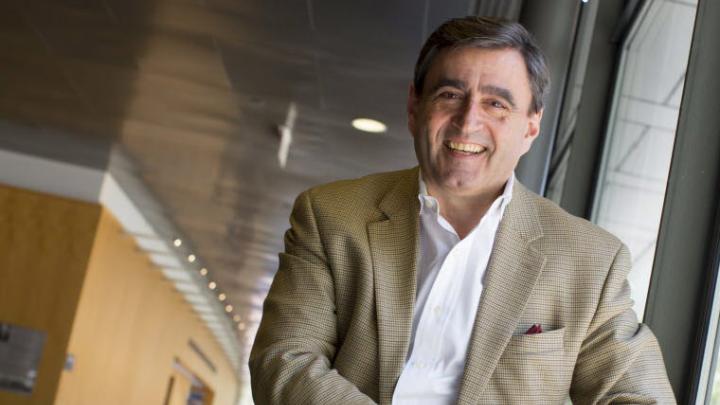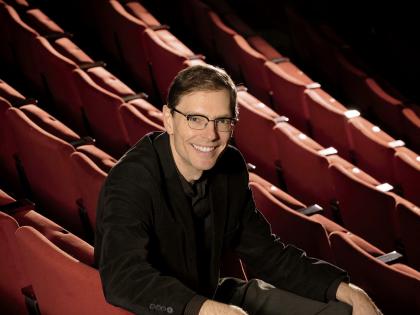Eric Mazur, Balkanski professor of physics and applied physics, has been named the first winner of the Minerva Prize for Advancements in Higher Education. Specifically cited was Mazur’s work to develop “Peer Instruction, an innovative teaching method that incorporates interactive pedagogy into the classroom and has been recognized worldwide for driving dramatic improvements in student learning outcomes.”
As he told Harvard Magazine (see the 2012 feature “Twilight of the Lecture”), one day he “did something I had never done in my teaching career. I said, ‘Why don’t you discuss it with each other?’”
Immediately, the lecture hall was abuzz as 150 students started talking to each other in one-on-one conversations about the puzzling question. “It was complete chaos,” said Mazur. “But within three minutes, they had figured it out. That was very surprising to me—I had just spent 10 minutes trying to explain this. But the class said, ‘OK, We’ve got it, let’s move on.’
“Here’s what happened,” he continues. “First, when one student has the right answer and the other doesn’t, the first one is more likely to convince the second—it’s hard to talk someone into the wrong answer when they have the right one. More important, a fellow student is more likely to reach them than Professor Mazur—and this is the crux of the method. You’re a student and you’ve only recently learned this, so you still know where you got hung up, because it’s not that long ago that you were hung up on that very same thing. Whereas Professor Mazur got hung up on this point when he was 17, and he no longer remembers how difficult it was back then. He has lost the ability to understand what a beginning learner faces.”
This innovative style of learning grew into “peer instruction” or “interactive learning,” a pedagogical method that has spread far beyond physics and taken root on campuses nationally. Last year, Mazur gave nearly 100 lectures on the subject at venues all around the world. (His 1997 book Peer Instruction is a user’s manual; a 2007 DVD, Interactive Teaching, produced by Harvard’s Derek Bok Center for Teaching and Learning, illustrates the method in detail.)
Interactive learning triples students’ gains in knowledge as measured by the kinds of conceptual tests that had once deflated Mazur’s spirits, and by many other assessments as well. It has other salutary effects, like erasing the gender gap between male and female undergraduates. “If you look at incoming scores for our male and female physics students at Harvard, there’s a gap,” Mazur explains. “If you teach a traditional course, the gap just translates up: men gain, women gain, but the gap remains the same. If you teach interactively, both gain more, but the women gain disproportionately more and close the gap.” Though there isn’t yet definitive research on what causes this, Mazur speculates that the verbal and collaborative/collegial nature of peer interactions may enhance the learning environment for women students.
The Minerva Prize recognizes one faculty member from any institution worldwide who has made a significant impact on student learning experiences through extraordinary innovation in higher education, and includes a $500,000 cash award.
“Members of the Academy unanimously and enthusiastically agreed on the selection of Dr. Mazur as the first recipient of the Minerva Prize,” said Roger D. Kornberg ’67, JF ’76, a Nobel laureate in chemistry who is governor of the Minerva Academy, in a statement. “His development of the Peer Instruction teaching methodology, now broadly adopted, embodies the innovation in teaching excellence that the Minerva Prize was conceived to recognize and promote. We are pleased to bestow this honor upon an individual who has contributed so greatly to the advancement of teaching and with such passion for improving student learning outcomes.”









